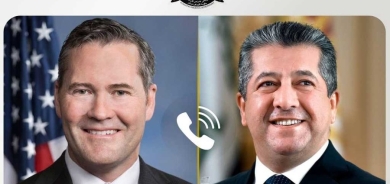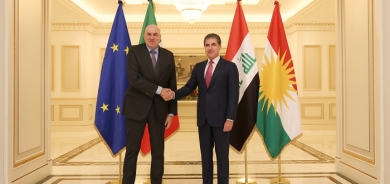Ian S. Lustick to Gulan: I imagine the end of the Syrian Regime will be more like that of the Ceaucescu regime in Romania than of other, less violent, transitions in Eastern Europe
November 23, 2011
Exclusive Interviews

Ian S. Lustick is Professor of Political Science in The University of Pennsylvania, and an expert on the Middle East Policies and Comparative Politics. To discuss the upcoming changes and the ongoing violence occur in Syria, along with futuristic expectations and probabilities, particularly when observers nowadays expect notable changes in the near future in Syria. We have contacted the Professor Lustick and he replied to our question in an exclusive interview to Gulan Magazine as the following:* According to the recent changes and more isolation of Syria from the outside, many countries are saying that Syrian regime is falling down. So, do you think if the international pressures are able to topple Syrian regime?
- I believe the Assad regime will fall and that growing international pressure will be a part of it, but I do not believe that NATO will intervene directly as it did in Libya. This will be a long process. I think two years is a reasonable estimate.
* Do you think if there will be any initiative on the level of Arabic countries to peaceful change of Syrian regime? Just like the initiative of Gulf States toward Yemen? And, will Syria agree to a similar initiative?
- In the course of time, over the next year or so, there will be many such initiatives, but I do not expect them to succeed. One of them, however, will likely be a part of the process that brings the regime down. I imagine the end will be more like that of the Ceaucescu regime in Romania than of other, less violent, transitions in Eastern Europe.
* Day after day, the death toll in Syria is rising, with having China and Russia still opposing the change of Syrian regime on the level of the Security Council Countries. So, how far the position of Russia and China will be a reason for the remaining of Syria regime in power?
- Because their positions prevent the Security Council from making a clear decision that would permit NATO to act, I think this position is very important in understanding the regime's ability to survive.
* Another dangerous aspect of Syrian case is emergence of civil war inside Syria. So, how far the situation will run out of control if civil war takes place inside Syria?
- Since the Alawites and Christians are relatively small minorities, an all-out civil war such as that which occurred in Lebanon is unlikely. The real question is whether the armed forces loses the ability to act in non-Alwaite areas, or whether significant numbers of soldiers are able to organize a separate force. Since the issue is the integrity of the military, sudden change can occur as military officers stampede toward the exits when they see the winds shifting against the regime.
* The Syrian national council suggested the interfering of UN forces to prevent violence and to protect the civilians. So, how far the UN peaceful force is able to perform this?
- Until the Security Council acts, this will not occur. As long as Russia and China maintain their positions, the Security Council will not act. But if there is a threat of regional war, Russia and China could change their positions.
* How far the remaining of Syrian situation this way is a factor for instability on the level of Syria and regional countries?
- As the situation in Syria becomes uglier it will encourage regimes such as Morocco and Algeria and Jordan and Kuwait to think more quickly about how to manage a transition or democratization in some way that will avoid a Syrian outcome. I do not believe Israel will intervene, but Iraq's situation is so delicate that instability in one will aggravate unrest in the other. The Iranian alliance with Syria and the Iranian interest and influence in Iraq and in Lebanon will make its policies crucial. Indeed there have been reports that Lebanese elements have moved into Syria to support the regime.
* Last Question: Although the neighboring countries of Syria on the regional level are different, but they are equally effective toward the situation. So, how far the regional and neighboring countries of Syria can play an effective role toward the situation in Syria?
- Turkey and Iran have the most leverage and the most potential to make positive contributions. If they jointly told Assad he had to leave, and that guarantees for his people and the Alawites and theur allies would be enforced, they might have a chance to help resolve the problem.















